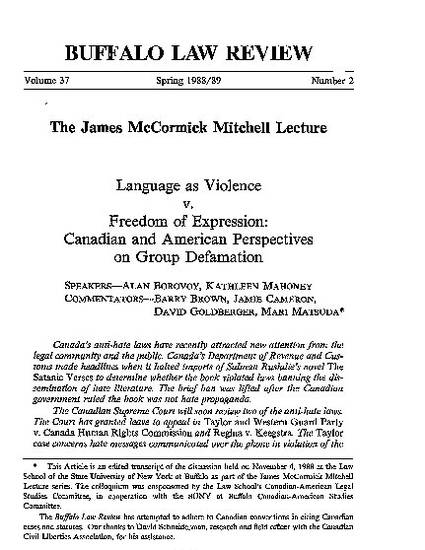
Canada's anti-hate laws have recently attracted new attention from the legal community and the public. Canada's Department of Revenue and Customs made headlines when it halted imports of Salman Rushdie's novel The Satanic Verses to determine whether the book violated laws banning the dissemination of hate literature. The brief ban was lifted after the Canadian government ruled the book was not hate propaganda. The Canadian Supreme Court will soon review two of the anti-hate laws. The Court has granted leave to appeal in Taylor and Western Guard Party v. Canada Human Rights Commission and Regina v. Keegstra. The Taylor case concerns hate messages communicated over the phone in violation of the Canadian Human Rights Act. Keegstra, which was discussed extensively at this November 1988 colloquium, involves a prosecution for promoting hatred against an identifiable group in violation of the Canadian Criminal Code.
